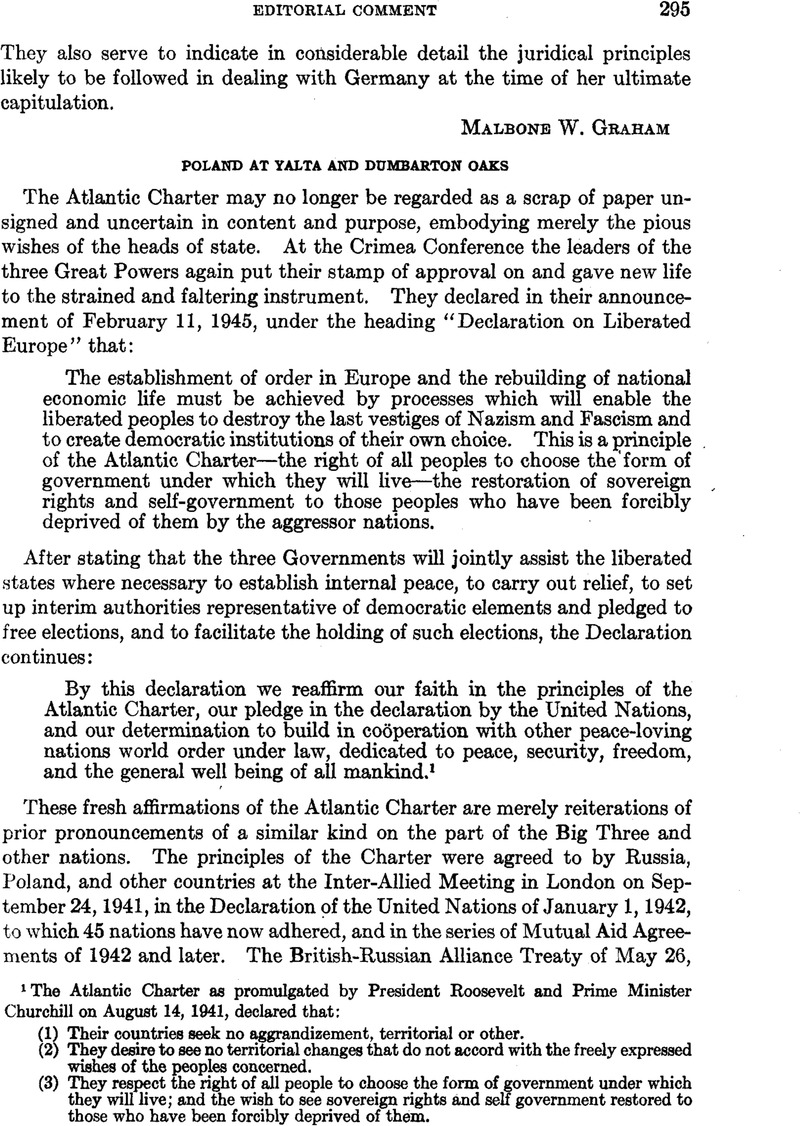No CrossRef data available.
Published online by Cambridge University Press: 25 April 2017

1 The Atlantic Charter as promulgated by President Roosevelt and Prime Minister Churchill on August 14, 1941, declared that:
(1) Their countries seek no aggrandizement, territorial or other.
(2) They desire to see no territorial changes that do not accord with the freely expressed wishes of the peoples concerned.
(3) They respect the right of all people to choose the form of government under which they will live; and the wish to see sovereign rights and self government restored to those who have been forcibly deprived of them.
2 For a review of these engagements, see the present writer's “A Pattern of World Order,” this Journal, Volume 36 (1942), p. 621, and “The Polish Boundary Question,” Volume 38 (1944), p. 441.
3 On November 6, 1941, the 24th anniversary of the Socialist Revolution, Mr. Stalin in a speech at a meeting of the Moscow Soviet of Deputies of the working people said: We have not and cannot have such war aims as the seizure of foreign territories and the subjugation of foreign peoples—whether it be peoples and territories of Europe or peoples and territories of Asia, including Iran. Our first aim is to liberate our territories and our people from the German-Fascist yoke.
4 In all such matters of peaceful settlement the Council would act by majority vote, excluding the disputants but including the permanent members not disputants: Department of State Press Release, March 24, 1945.
5 It may be recalled that the guaranty of the territorial integrity and political independence of all members of the League in Article X of the Covenant with the implication of maintaining the territorial and political stipulations of the Peace Treaties of 1919 and 1920 was the main cause of the failure of the Covenant in the United States Senate. Article X, however, later became a dead letter because of the failure of the powers to carry out their obligations, particularly in the cases of Manchuria, Ethiopia and Finland, although the United States initiated and maintained her doctrine of non-recognition in the first case, and gave assurances of cooperation in the second case.